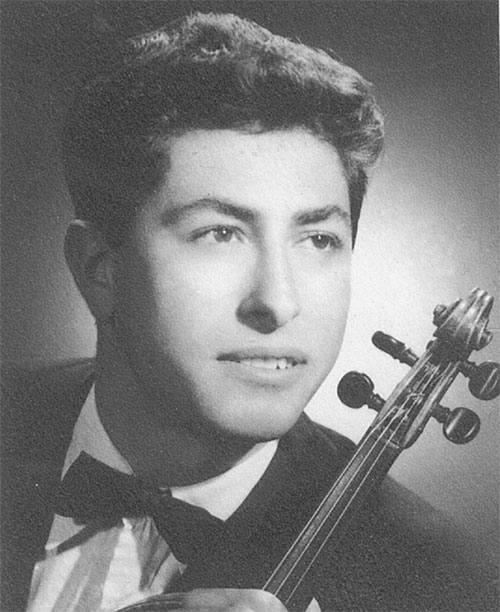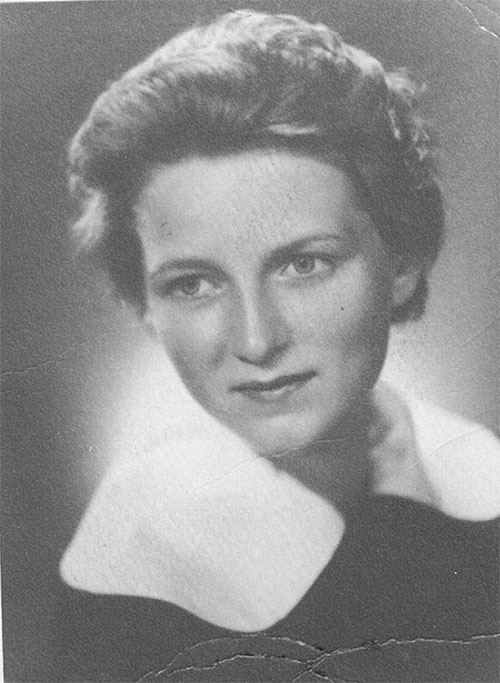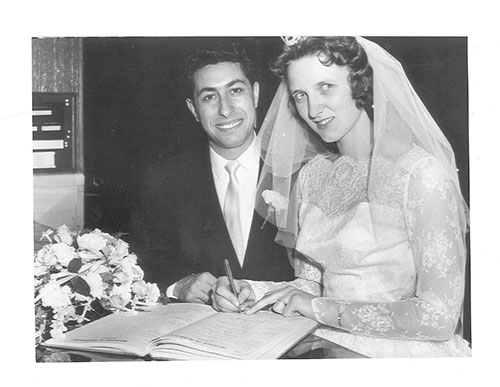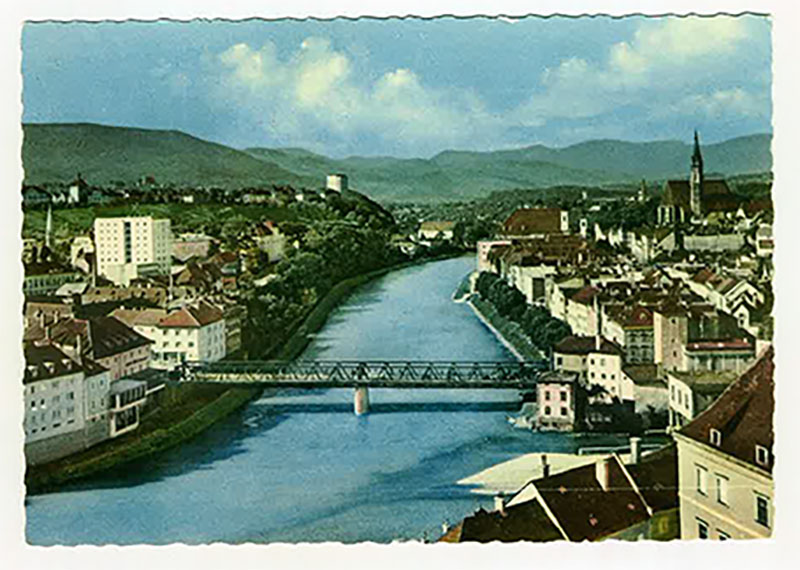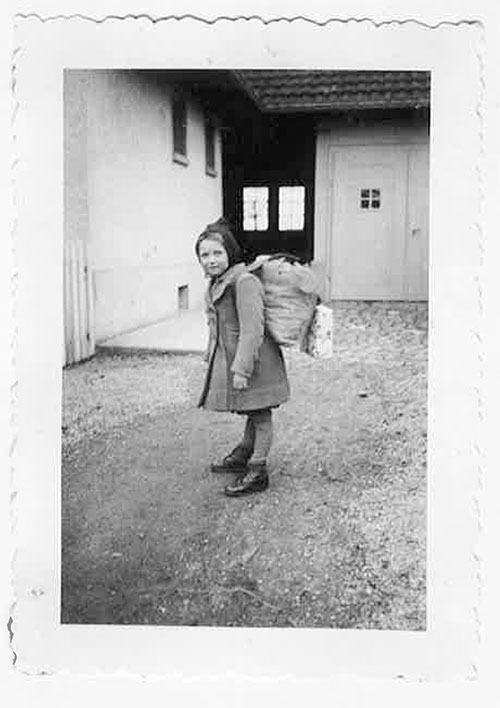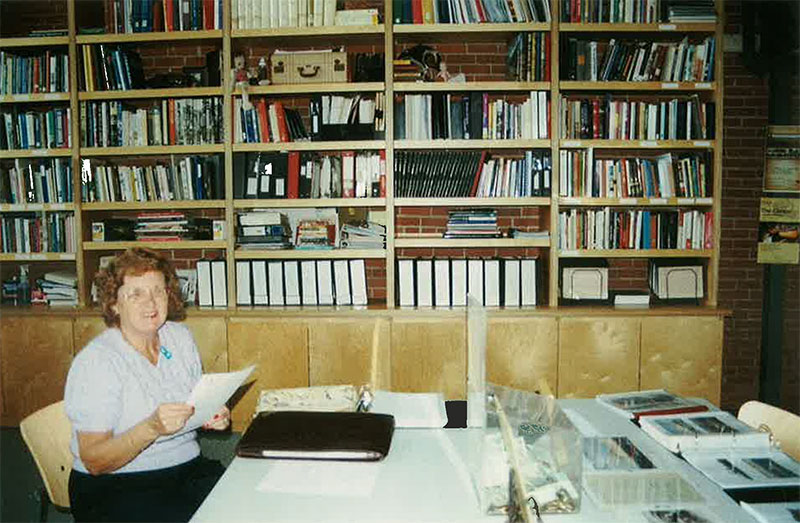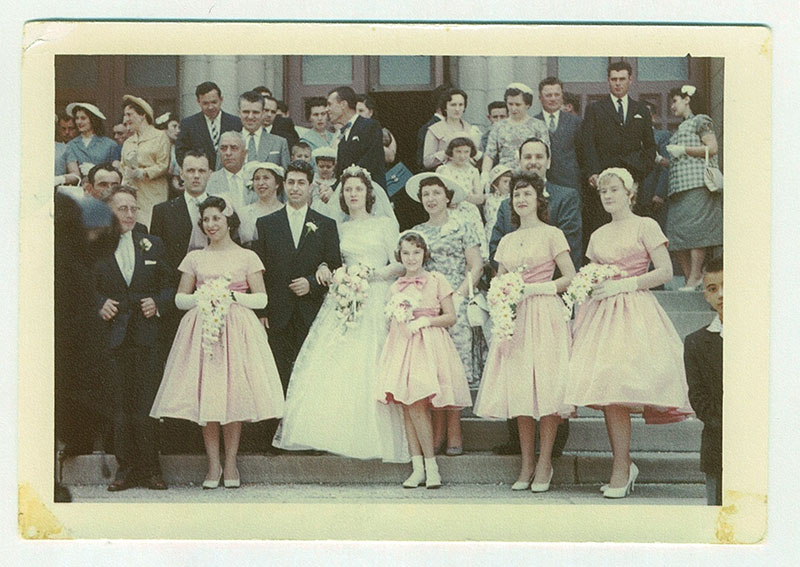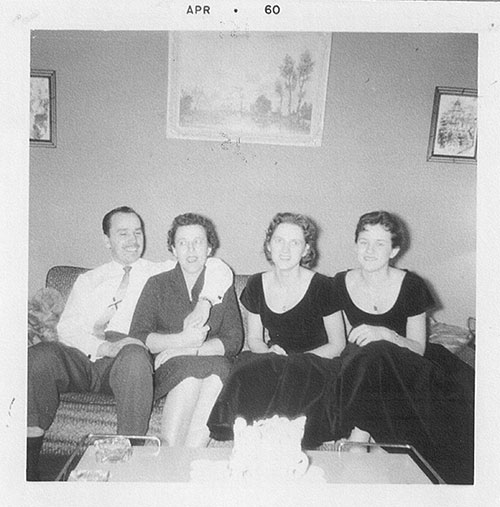Sobey Wall of Honour
Column
175
Row
23
A Short Pre-Immigration Story - by Brigitta Sbarra (Haider)
I am Nicholas, Brigitta’s other half - in marriage, that is…and I thought that one of the brief stories she told me about some events that preceded her immigration to Canada would be an interesting variation from the customary and somewhat familiar tales.
Let me explain how she expressed some accounts of post- World War II events that occurred in her picturesque Austrian town of Steyr. But first it may be appropriate to outline some introductory comments about her immigration to this side of the ocean extracted from my book "Pier 21 - 1951 Our Family’s Immigration To Canada by N.C. Sbarra”.
Brigitta Haider, this is her maiden name, is an immigrant from her native Austria. She arrived in Canada in June 1956, not passing through the threshold at Pier 21, but via indirect flights with British European Airways from Salzburg, Austria, through London (England), landing in London, Ontario, Canada. She was seventeen years of age, travelling alone, with very little cash and without any knowledge of the English language.
For many newcomers the transition from the Old World to the New one is mainly generally underlined by a common factor - their desire to join relatives and, quite often, the necessity to search for a better way of life.
Although it is recognized that the common ingredients associated with the events leading to a passage into Canada through Pier 21 are not necessarily present in her life - as are for many newcomers - Brigitta’s days at the end of World War II do contain some interesting aspects worthy of note.
There is, for example, the notion that even though her most unpleasant experiences during the war itself were confined to evacuating out of the city into the farmland, these events were not very significant per se; however, the post-war years did create some considerable distress. During many of our conversation on this aspect of her life, she often expressed the anguish suffered through that period as a result of separation from some of her loved ones.
"Steyr, the picturesque city of her birth, is divided by the Enns river, quite a few hundred yards wide. Near the end of the war, in 1945, the Russian army was advancing relentlessly”, Brigitta explained. "The army stormed in and occupied the whole city, pushing further westward. Steyr remained under Russian control for a short while, but soon afterward the conflict between the American army (the Allies) and the Russian forces erupted. Eventually the Allied forces gained the upper hand and pushed the opposing army back – all the way to the other side of the Enns river. This created a disturbing situation,” she continued, “ because now the two armies positioned themselves at the opposite shores of the river, facing each other. This caused the separation of families, relatives and friends who resided on either side of the stream.” Brigitta went on "My family, consisting of my mother Anna, father Victor, sister Elizabeth and I, lived in the sector occupied by the Russians while my grandmother (Anna) and other relatives lived in the American-controlled zone, totally barricaded, divided by checkpoints, and for a time, with restricted movement between inhabitants of the two factions. This condition lasted for a little while” Brigitta stated. “The omnipresent method of communication and greetings between divided families and friends was generally expressed at “viva-voce”, a term perhaps better redefined as shouting with open lungs from the edge of the river! These were unpleasant times” she concluded.
The military occupation by the foreign armies was defunct some years after the end of the conflict, with the Russian forces departing from the occupied zone a few years earlier than the Allies.
Families were reunited and Brigitta was again free to visit her grandmother and her playmates at will, and so resume her strolls across the river - without the hardships that are generally suffered by those who are deprived of the simple enjoyments of every day’s life, when so forced by acts of war.
Her migration to Canada – on September 6, 1956 - was not prompted by harsh personal adversities nor by the search for new employment, but rather to join her mother, her new step-father, Joseph, and sister Elizabeth who had already moved to the new land a few years earlier.
The consequences of that decision became a far reaching element that affected both of our lives and resulted in our union still strong today – celebrating the fifty-seventh year of marriage.
We are now in 2017!
- Nicholas C. Sbarra
